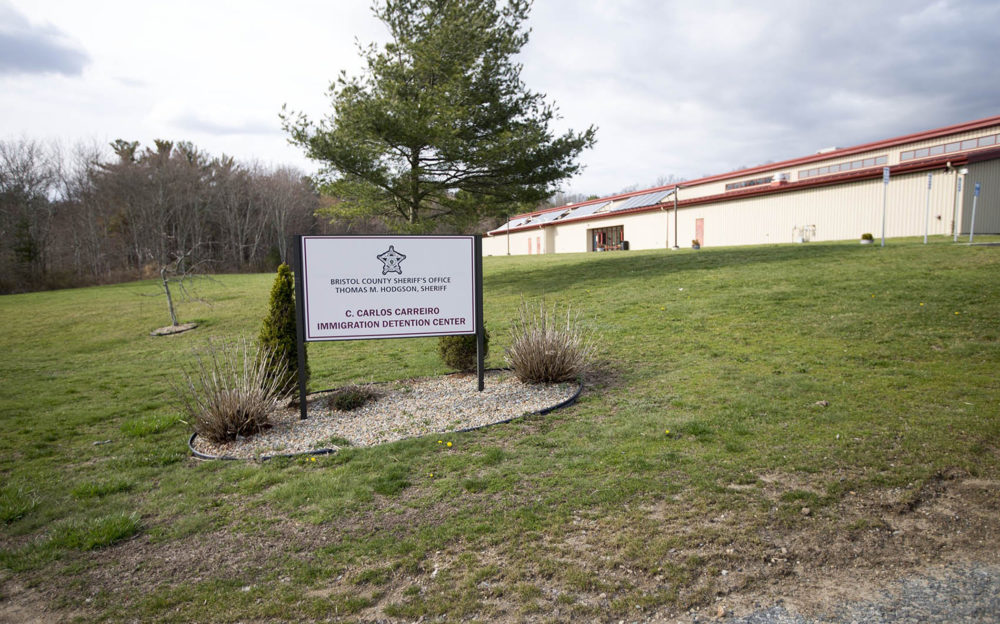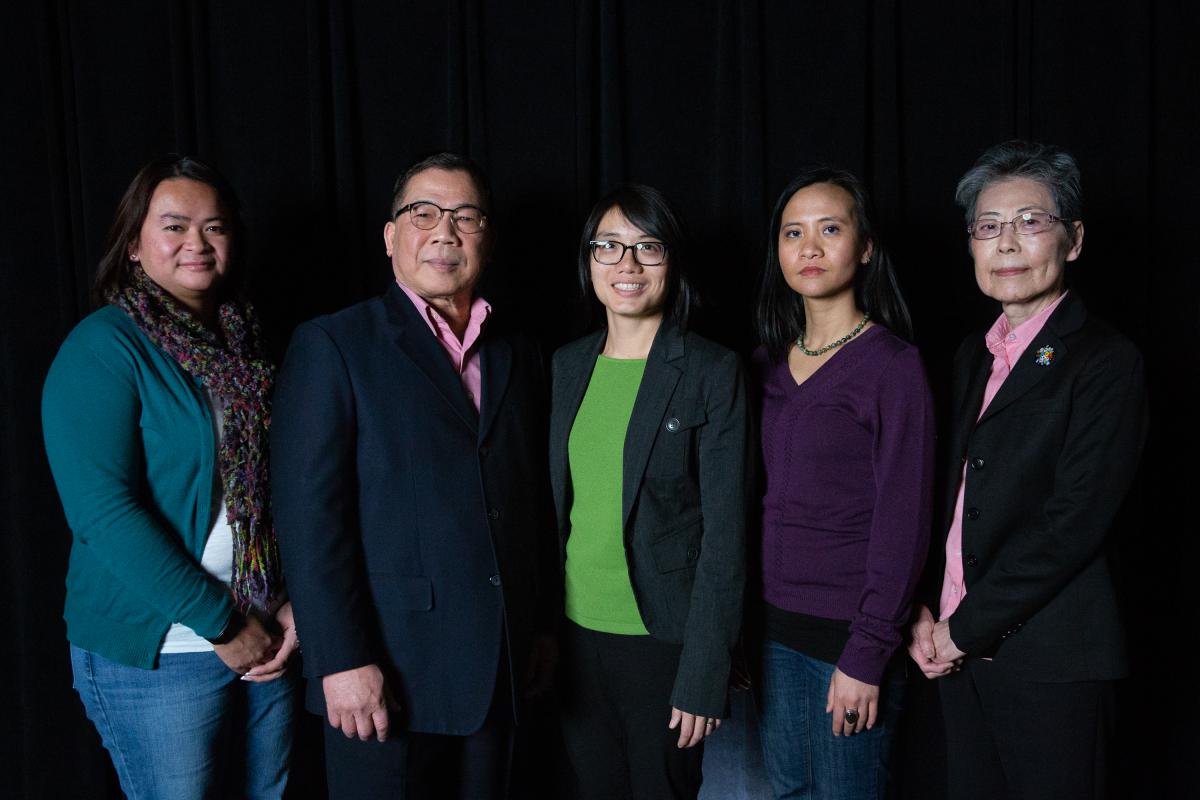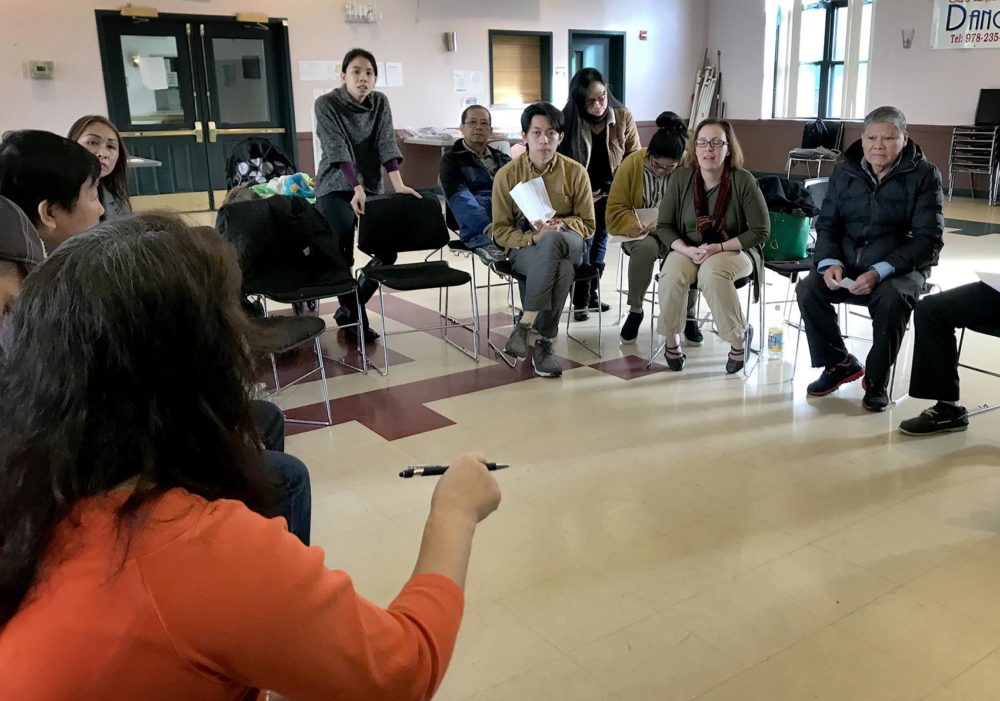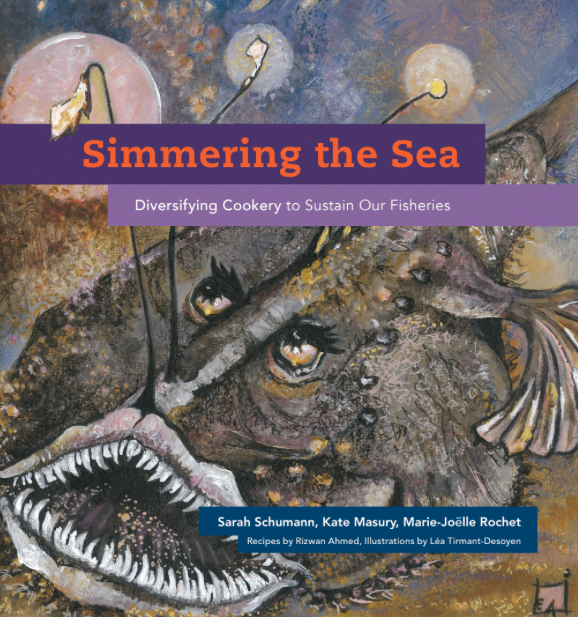Episode 134: The Fate Of Thousands Of Vietnamese Immigrants; Cookbook Makes The Case for Diversifying Seafood

This week on NEXT:
We discuss the role of Immigration and Customs Enforcement in communities, including partnerships between New England Sheriffs and the agency. Plus, we explore the challenges incarcerated women, and their families, are facing in Western Massachusetts.
And, why Southeast Asian refugees are especially susceptible to gambling addiction. In addition, how changes to immigration policies under President Trump are impacting Vietnamese immigrants.
Finally, we learn how to cook with a diversity of seafood and discuss why eating different types of species can help sustain our fisheries.
WBUR’s Shannon Dooling guest hosts.
It’s NEXT.
Photo at the top of the page: An illustration of a Sea Robin from the Simmering the Sea cookbook. Illustration by Léa Tirmant-Desoyen, courtesy of Eating with the Ecosystem
New England Sheriffs Partner with ICE to Jail Immigrant Detainees

The Immigration Detention Center at the Bristol County Jail in North Dartmouth. Photo by Jesse Costa for WBUR
President Donald Trump’s declaration of a national emergency at the country’s southern border was greeted with swift opposition. Sixteen states, including Connecticut and Maine, have filed a lawsuit against the administration’s attempt to fund the building of a wall along the United States’ border with Mexico. Maine Attorney General Aaron Frey told Maine Public that the fundamental concern is that the president violated the separation of powers clause of the constitution. And Frey says nearly $160 million dollars appropriated for projects in Maine could be diverted, and that could hurt the state’s economy. Connecticut’s Attorney General William Tong is also concerned about the administration’s move to divert money away from other projects to pay for a border wall.
President Trump has tweeted that he believes the suit is political, and he expects to win it in the end. Funding the president’s border wall is one of the many immigration-related debates defining the Trump administration.
Another one? The role of U.S. Immigration and Customs Enforcement (ICE) in local communities. Towns and cities across New England have taken steps to adopt so-called “Sanctuary City” policies aimed at reducing cooperation between local police and ICE. But some of the states in the region still cooperate with ICE when it comes to jailing immigrant detainees.
To talk more about the partnerships between ICE and county sheriffs, we’re joined by Sarah Sherman-Stokes. She’s an immigration attorney and Associate Director of Boston University’s Immigrants’ Rights and Human Trafficking Clinic.
Interested in learning more? Check-out Shannon Dooling’s reporting about this practice in Massachusetts. We are also currently gathering information about this practice around the region.
How Distance Affects Incarcerated Women in Western Mass.

A woman at the Western Massachusetts Regional Women’s Correctional Center speaks on the phone. Photo by Stephanie Zollshan for the Berkshire Eagle
A new series from the Berkshire Eagle looks at the consequences of women being jailed outside of their home county.
The Berkshire County Jail and House of Corrections in Pittsfield, Massachusetts used to include sections for both men and women. But in 2014, a new unit was built at the Western Regional Women’s Correctional Center in Chicopee, Massachusetts.
Here to discuss how women and men are treated differently by the justice system in Western Massachusetts is Heather Bellow, she’s an investigative reporter for the Berkshire Eagle.
Read the whole “Sent Away” series here.
Gambling Addiction Hits Southeast Asian Refugees Hard

Mui Mui Hin-McCormick (at left) recruited the Asian Ambassadors a few years ago. They are Laotian elder Howard Phengsomphone, Vietnamese refugee Quyen Truong (center), Laotian refugee Sou Thammavong and Japanese immigrant Mari Merwin (at right). Photo by Ryan Caron King for Connecticut Public Radio
Strokes of good fortune and good luck are highly revered in some Asian cultures, and playing cards and dice at family gatherings and holidays goes back generations. But advocates in the Asian community say that tradition can sometimes lead to a hidden problem: gambling addiction.
As Connecticut Public Radio’s Vanessa de la Torre reports, Southeast Asian refugees who came to the U.S. after the Vietnam War are especially at risk.
This reporting is part of a project from Sharing America, “Fixed Odds: Problem Gambling in America.” The series explores the impact of problem gambling on communities of color.
How New Negotiations Could Impact Vietnamese Immigrants

Vietnamese immigrants attended a public forum at VietAid in Dorchester to learn more about changes to immigration policies under President Donald Trump. Photo by Shannon Dooling for WBUR
Among the concerns for Southeast Asian refugees living in the U.S. is increasing anxiety when it comes to immigration policies, especially among some Vietnamese immigrants across the country.
For more than a year now, the Trump administration has been quietly re-negotiating an agreement between the U.S. and Vietnam. The agreement has allowed some Vietnamese immigrants to live here for more than 20 years. WBUR’s Shannon Dooling reports.
Can Diversifying the Fish We Eat Can Help Sustain Our Fisheries?
Have you ever eaten razor clams, slipper limpets, butterfish or periwinkles? Have you ever heard of them? Many of us have our go-to seafood selections, like tuna, salmon, lobster, shrimp. But a new cookbook makes the case for changing it up.
Simmering the Sea is part cookbook and part field guide for diversifying the fish you eat and in the process, helping to sustain our fisheries.
We have two of the book’s co-authors here with us today: Kate Masury and Riz Ahmed. Kate Masury is the Program Director of the Rhode Island nonprofit “Eating with the Ecosystem.” Also with us is Chef Rizwan Ahmed, he’s a culinary instructor at Johnson and Wales University.
About NEXT
NEXT is produced at Connecticut Public Radio
Guest Host: Shannon Dooling
Producer: Lily Tyson
Digital Producer: Carlos Mejia
Senior Director: Catie Talarski
Contributors to this episode: Mal Leary, Robbie Feinberg, Frankie Graziano, Vanessa de la Torre, Shannon Dooling, Avory Brookins
Music: Todd Merrell, “New England” by Goodnight Blue Moon, “Lua” by Bright Eyes, “Shouei” by Yasmine Hamdan
—
New to NEXT? You can find every episode or one you missed within our archives.
We need your feedback! Send critiques, suggestions, questions, and ideas to next@ctpublic.org. Help us spread the word! If you like what you hear, rate and review us on iTunes.


